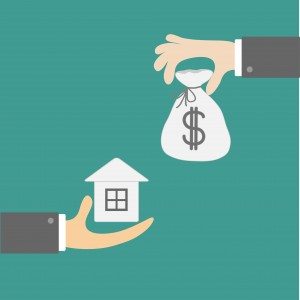 Closing costs are the expenses other than your down payment which you need to set aside in order to settle on your new home. They include but are not limited to:
Closing costs are the expenses other than your down payment which you need to set aside in order to settle on your new home. They include but are not limited to:
- mandated transfer tax (usually 1% of purchase price, but can be more)
- title insurance (set by the state and correlated with price)
- closing protection letter ($125)
- broker fee (usually around $375)
- appraisal fee (often $450)
- credit report fee (usually around $50)
- recording fees ($300-$475)
- flood and tax certifications (usually around $100)
- notary fees (usually around $50)
- tax and homeowner insurance escrows (depends on taxes and insurance amounts)
- title endorsements (because Pennsylvania does not require surveys–usually around $200)
- homeowner association capital contribution fees (often 2 months’ worth of hoa/condo fees)
- mortgage application or processing fees (can be as high as $900)
- any points you have agreed to pay in order to lower your rate (depends on points)
- lender escrows
- interest from settlement date until the end of the month
- reimbursements to the seller
Please note that closing costs in Pennsylvania are much higher than in most other areas. My rule of thumb is to tell buyers to figure about 4.5-5% of the purchase price OVER AND ABOVE THE DOWN PAYMENT in closing costs which is CASH—not financeable money due at closing. While there are instances where the mortgage company will roll certain fees into the mortgage payment, it’s safest to assume that the entirety of closing costs will be cash. Again, this amount will be less if you are planning to pay your homeowner’s insurance and/or your property taxes in full when the bill comes as opposed to paying these bills as a portion of your monthly payment to the bank. In order to be better able to cover your closing costs, you may want to consider a seller’s assist. (For an explanation of seller’s assist, please see Making an Offer.)
So PLEASE, talk to a mortgage professional before you start looking at houses on line—falling in love with houses in the $600,000 range only to discover you can realistically spend $475,000 stinks. Another important nuance: things like taxes can vary greatly in our area, so a pre-qualification for a purchase price that doesn’t address the tax burden/HOA/homeowner’s insurance is incomplete. Make sure you are crystal clear on the TOTAL monthly amount the lender is approving you for because a house in one area that costs $505,000 may have taxes of $8,687 per year, while in a different township, that $505,000 house might have a $11,235 annual tax. That’s $212 per month more in taxes. For a more in-depth discussion of exactly what the bullet-pointed closing costs above are, please contact me directly.

